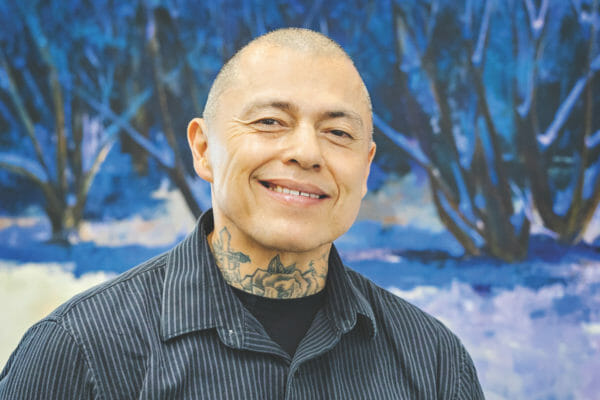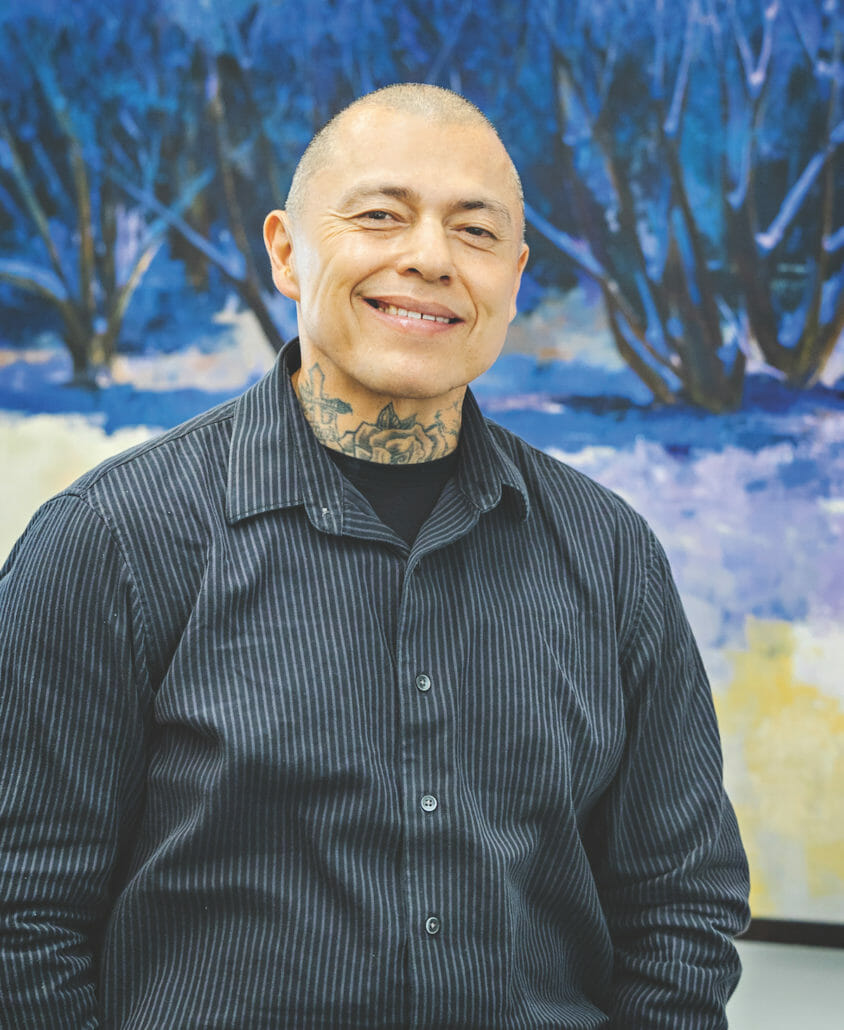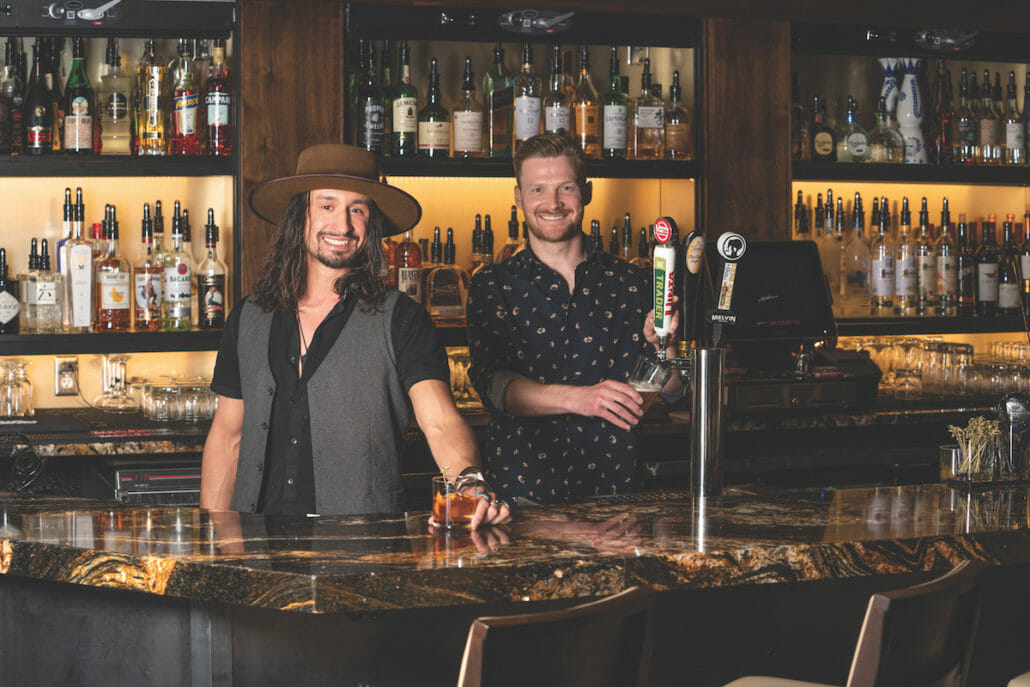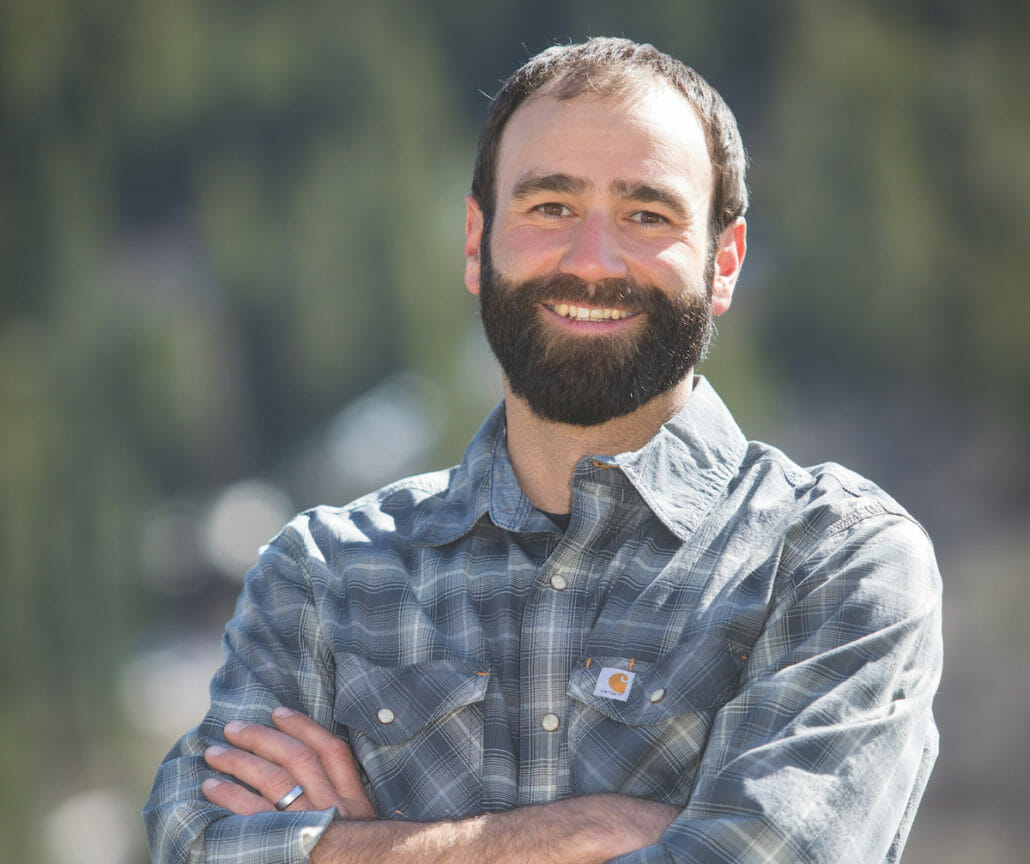
Park City resident works to be a positive role model
Leo Garcia shows his gratitude by passing his knowledge along
Summer 2022
Written By: Natalie Taylor | Images: Julie Shipman
“My grandfather rode his horse into the Sangre de Cristo Mountains every morning to hunt or fish,” says Leo Garcia. “Whatever he caught was dinner. My grandmother skinned it and cooked it over a fire. We ate off the land.”
Leo was raised in Monte Vista, Colorado by his Apache grandfather and Navajo grandmother — neither spoke English. His grandfather spoke Navajo and Apache, his grandmother spoke Navajo and Nahuatl. “I had a traditional upbringing. I learned songs from my grandparents and I still sing them every day,” he says. “We would sing and dance and drum.”
During those days, he also tended fires for sweat lodge ceremonies. “I started the fire and added the hot lava rocks,” he says. “I prayed, took care of details, made fans out of eagle feathers.” Eventually, the fourth-generation Apache medicine man invited Leo to sweat with him. “I suffered a lot, it humbled me deeply,” he says, but the medicine man was impressed by Leo’s strength and taught him how to run sweat lodge ceremonies. “It was a beautiful, rich culture,” he says.
Eventually, his family moved from the San Luis Valley and spread out — Leo attended Metropolitan State University in Denver. Over time, he lost many friends and family members to alcohol and drug addiction.
“It was hard, dealing with all the anger and animosity,” he says. “I was raised to be obedient, to walk the Red Road and live the way we were taught to live. I was raised that if you smoked the chanunpa pipe during ceremony, you had to have a good heart, let go and forgive.”
He worked hard to find peace.
After school, Leo moved to Salt Lake City to teach life and job skills to residents at The Other Side Academy, a school and residential program for homeless people, convicts, or those living with addiction. The day he moved to Park City there was a parade on Main Street. He lost his wallet and ID and couldn’t book a room or buy food. So, he spent the night on the street.

The next day, he heard about the Christian Center of Park City, a humanitarian organization that provides a wide range of social services. They helped him get a job, housing, and replace his documents. He started by washing dishes at Stein Eriksen Lodge and using chess to teach critical thinking to private clients and at the library. “Chess is all about decisions and choices and consequences,” he explains.
Over the next few decades, Leo worked as a prep cook and managed line cooks for some of the best chefs and restaurants in town — including Stein Eriksen, Montage Deer Valley, and 501 On Main.
Now, he volunteers at the Summit County Clubhouse, a recovery-based community for people living with mental illness. “I teach basic kitchen safety classes,” he says. “I am so grateful for how much other people taught me — it is a privilege and honor to give back and teach them how to bake and cook. I show my gratitude by passing knowledge along.” Many people have benefitted from his patient and gentle lessons.
“I’ve seen a lot of youth misdirected, misguided, and deceived. We don’t have many elders teaching our ways. We need better role models, so I try to lead by example,” he says. “To be a positive role model and show that people do care about other people. I just want to do the next right thing.”
In 2020, his almost 100-year-old grandmother died. “I cut my long hair, took off the medicine bag, put away the jewelry that had been passed down for generations,” he says. “I am still grieving.” And although he doesn’t go to powwows and sweat ceremonies now, he still sings the songs. “My grandparents were kind and loving people. I try to be the same.”

